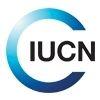|
|
Due to maintenance work, our HR Management System might be inaccessible
on
Monday, 29 July 2024, from 11:00 to 12:00 CEST (UTC+02:00)

Programme Officer - Red List of Ecosystems
|
Furthermore, the Programme Officer will be required to support the RLE team in resource mobilisation and growth of the RLE project portfolio, collaborating closely with the Commission on Ecosystem Management (CEM) and major external partners. Working closely with the Director GEMP, this position will provide robust technical inputs for development of new RLE initiatives and projects. This requires quality and timely implementation of the current projects in order to leverage them for mobilising future funding and partnership opportunities.
To work effectively on the tasks above, the Programme Officer is expected to build his/her knowledge and skills on RLE, in order to provide substantive technical support to the RLE global database and the global ecosystem typology (both currently under development), as well as to design and implementation of RLE assessments, worldwide.
• Support the growth and development of IUCN’s RLE programme through activities such as resource mobilisation, providing technical input into development and implementation of new RLE projects, and supporting RLE assessments;
• Collaboratively develop the RLE strategic plan for next 5 years, identify and implement activities for the next 2 years;
• Lead liaison and administrative processes for the establishment of the RLE partnership;
• Lead awareness raising, profiling and building of technical capacities of IUCN offices on the RLE methodology, in order to apply RLE more widely in IUCN’s Programme and Policy work;
• Coordinate and provide technical input to institutional processes for aligning RLE with other IUCN knowledge products such as Key Biodiversity Areas (KBA), and the Red List of Threatened Species.
• Contribute to and, where appropriate, lead scientific and technical RLE products, including joint commission-secretariat products – IUCN publications, journal papers, scientific chapters, RLE reports from assessments;
• Working closely with the core RLE team to support further development of guidelines, tools and spatial mapping for the Red List of Ecosystems;
• Technically support partners working on RLE database development, including standardization processes and data population;
• Manage the global ecosystem typology and its governance, and facilitate its correct application across IUCN membership and other users, develop communications to widely disseminate the product and supporting information.
|
• Master’s Degree or equivalent in Ecology, Geography, Environment Management or a relevant field; • At least 5 years’ work experience at a professional level, with quantitative technical skills related to ecosystem assessment and monitoring, ecological classification, and spatial analysis; • Familiarity with the concepts underpinning the Red List of Ecosystems, including ecosystem dynamics, risk assessments, and ecology. Experience in conducting a Red List assessment or mapping of ecosystem components such as vegetation, soils, climate would be highly advantageous; • At least 2 years of experience in developing funding proposals and project management; • Previous experiences of coordinating partnerships across a wide range of stakeholders is highly desirable; • Demonstrated experience in database management, or mapping applications such as ArcGIS. Proficiency in the R statistical software would be advantageous; • Fluency in English and demonstrated ability for report writing and ability to communicate complicated technical issues to a wide range of audiences and cultures; • Availability for travel up to 50% of time. |
Applicants are requested to apply online through the HR Management System, by opening the vacancy announcement and pressing the "Apply" button.
Applicants will be asked to create an account and submit their profile information. Applications will not be accepted after the closing date. The vacancy closes at midnight, Swiss time (GMT+1 / GMT+2 during Daylight Saving Time, DST). Please note that only selected applicants will be personally contacted for interviews.
Other job opportunities are published in the IUCN website: https://www.iucn.org/involved/jobs/
About IUCN
IUCN is a membership Union uniquely composed of both government and civil society organisations. It provides public, private and non-governmental organisations with the knowledge and tools that enable human progress, economic development and nature conservation to take place together.
Created in 1948, IUCN is now the world’s largest and most diverse environmental network, harnessing the knowledge, resources and reach of more than 1,400 Member organisations and around 16,000 experts. It is a leading provider of conservation data, assessments and analysis. Its broad membership enables IUCN to fill the role of incubator and trusted repository of best practices, tools and international standards.
IUCN provides a neutral space in which diverse stakeholders including governments, NGOs, scientists, businesses, local communities, indigenous peoples organisations and others can work together to forge and implement solutions to environmental challenges and achieve sustainable development.
Working with many partners and supporters, IUCN implements a large and diverse portfolio of conservation projects worldwide. Combining the latest science with the traditional knowledge of local communities, these projects work to reverse habitat loss, restore ecosystems and improve people’s well-being.
www.iucn.org
https://twitter.com/IUCN
